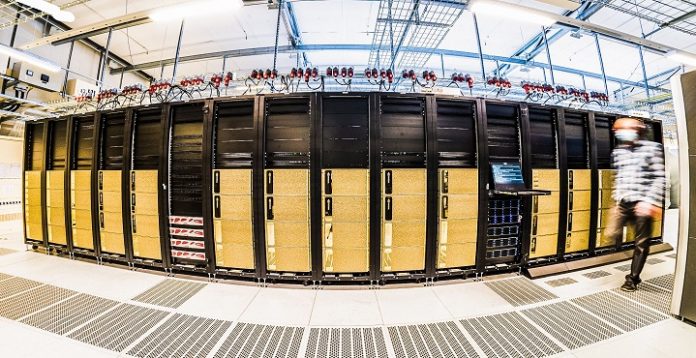Berzelius is now Sweden’s fastest supercomputer for AI and machine learning and has been installed in the National Supercomputer Centre at Linköping University. A donation of EUR 29.5 million from the Knut and Alice Wallenberg Foundation has made the construction of the new supercomputer possible.
“It’s very gratifying, but also a major challenge, that Linköping University is taking a national responsibility to connect all initiatives within high-performance computing and data processing.
Our new supercomputer is a powerful addition to the important research carried out into such fields as the life sciences, machine learning and artificial intelligence,” says Jan-Ingvar Jönsson, vice-chancellor of Linköping University.
The new supercomputer—Berzelius—takes its name from the renowned scientist Jacob Berzelius, who came from Östergötland, the region of Sweden in which Linköping is located. The supercomputer is based on the Nvidia DGX Super Pod computing architecture and delivers 300 petaflops of AI performance.
This makes Berzelius the fastest supercomputer in Sweden by far, and important for the development of Swedish AI research carried out in collaboration between the academic world and industry.
Marcus Wallenberg is vice-chair of the Knut and Alice Wallenberg Foundation, which made the construction of the new supercomputer possible by a donation of EUR 29.5 million.
“We are extremely happy for research in Sweden that the Wallenberg Foundations have been able to contribute to the acquisition of world-class computer infrastructure in a location that supplements and reinforces the major research initiatives we have made in recent years in such fields as AI, mathematics and the data-driven life sciences,” says Marcus Wallenberg.
The researchers who will primarily work with the supercomputer are associated with the research programs funded by the Knut and Alice Wallenberg Foundation, such as the Wallenberg AI Autonomous Systems and Software Program, Wasp. Anders Ynnerman, professor of scientific visualization at Linköping University and program director for Wasp, is happy to welcome the new machine.
“Research in machine learning requires enormous quantities of data that must be stored, transported and processed during the training phase. Berzelius is a resource of a completely new order of magnitude in Sweden for this purpose, and it will make it possible for Swedish researchers to compete among the global vanguard in AI,” says Anders Ynnerman.
Berzelius will initially be equipped with 60 of the latest and fastest AI systems from Nvidia, with eight graphics processing units and Nvidia Networking in each. Jensen Huang is Nvidia’s CEO and founder.
“In every phase of science, there has been an instrument that was essential to its advancement, and today, the most important instrument of science is the supercomputer. Berzelius, Marcus and the Wallenberg Foundation have created the conditions so that Sweden can be at the forefront of discovery and science.
The researchers who will be attracted to this system will enable the nation to transform itself from an industrial technology leader to a global technology leader.”, says Jensen Huang.
The facility has networks from Nvidia, application tools from Atos, and storage capacity from DDN. The machine has been delivered and installed by Atos. Pierre Barnabé is Senior Executive Vice-President and Head of the Big Data and Cybersecurity Division at Atos.
“We are really delighted to have been working with Linköping University on the delivery and installation of this new high-performance supercomputer.
With Berzelius, researchers will now have powerful computing power that is able to harness the power of deep learning and analytics, in order to speed-up data processing times, and provide researchers with insights faster, thereby helping Sweden to address some of the key challenges in AI and machine learning today,” says Pierre Barnabé.








